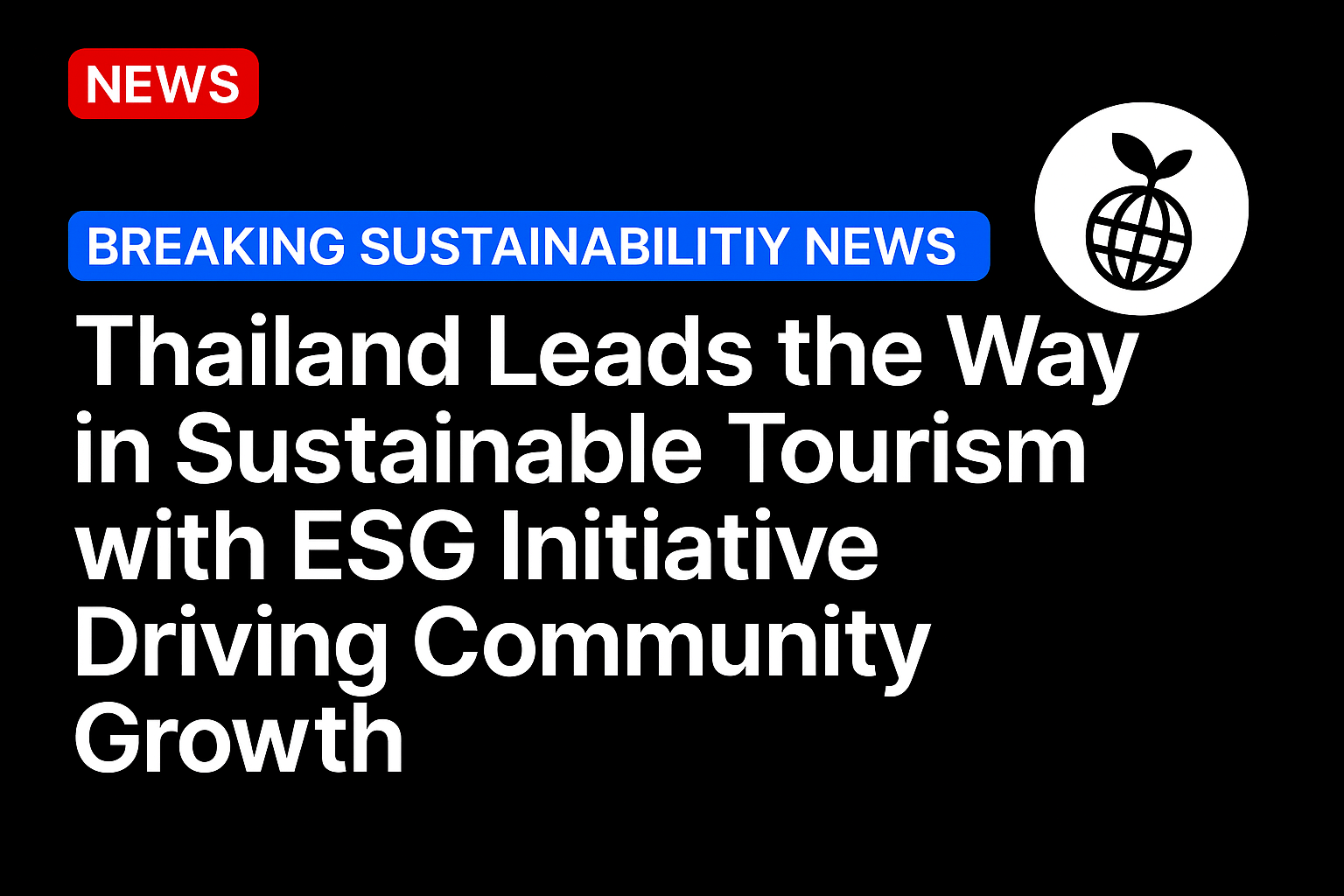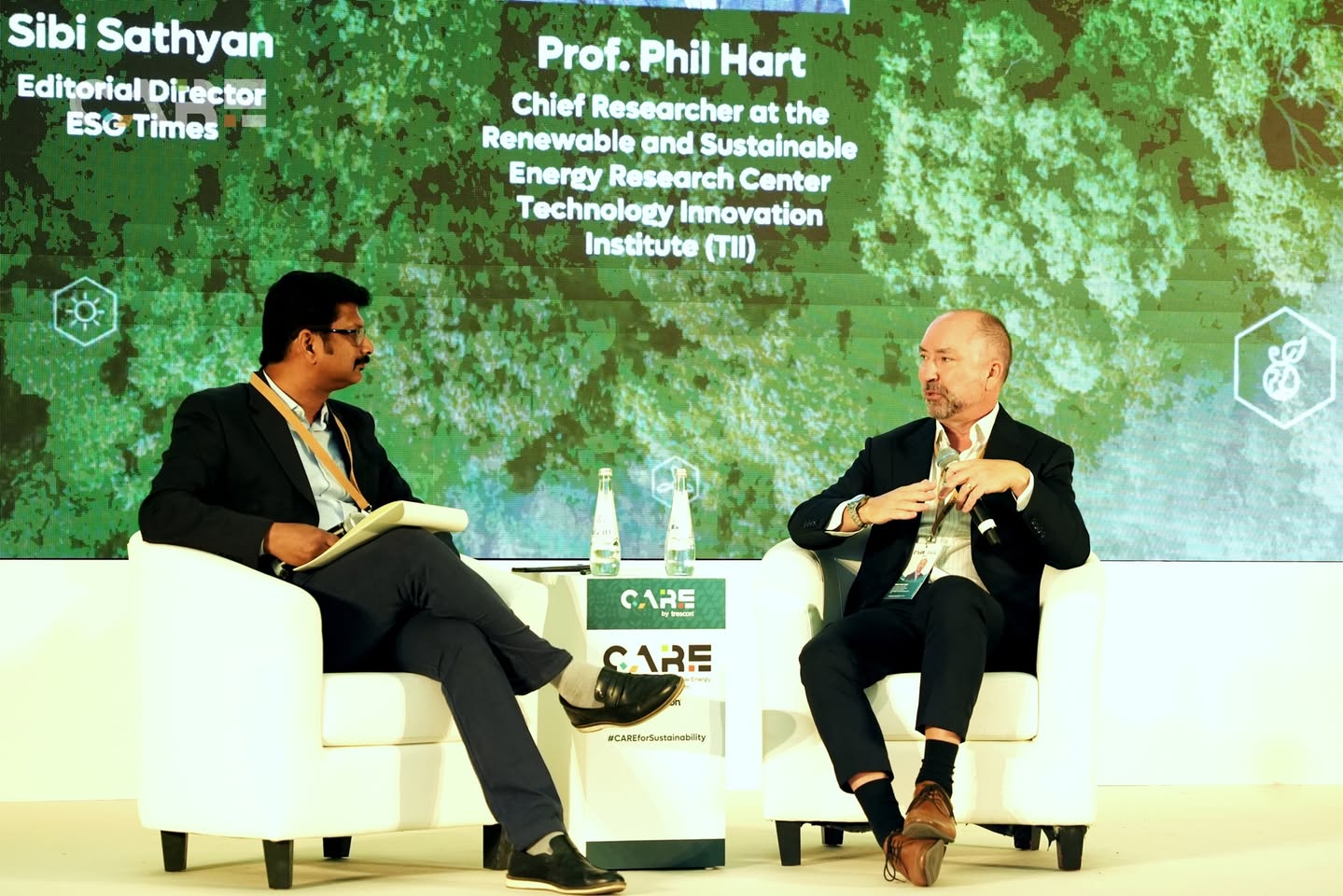Sustainable tourism is gaining popularity worldwide, and Thailand is at the forefront with its “Village to the World #SustainableAgenda” initiative. The Tourism Authority of Thailand (TAT) is in charge of the project. It aims to incorporate environmental, social, and governance (ESG) principles into the tourism sector. By using a community-based tourism model, this initiative focuses on empowering local communities and promoting sustainable practices in the tourism industry. In just two months, the project has seen impressive results, with a 20% increase in local incomes.
The Collaboration Behind Sustainable Growth
The project has been made possible by a collaborative effort between the Ministry of Tourism and Sports, the Stock Exchange of Thailand, the Department of Cultural Promotion, and several private-sector partners. The goal is to take Thailand’s community-based tourism to the global stage, blending cultural richness with sustainable development. The initiative moves beyond traditional corporate social responsibility (CSR) into tangible, measurable ESG outcomes that benefit both communities and businesses alike.
By focusing on ESG principles, the initiative seeks to create shared value, allowing both local economies and corporations to thrive. These collaborations aim to strengthen the link between community development goals and corporate sustainability objectives. By aligning the two, the initiative is driving Thailand’s transition toward a more sustainable growth model.
ESG in Action: A “Living” Tourism Platform
The project’s theme, “ESG Partnership for Impact – Partners for Sustainable Growth”, has demonstrated the effectiveness of community-based tourism as a dynamic platform for ESG practices. It successfully bridges capital markets, businesses, and Thai culture, creating opportunities for both local communities and corporations to contribute meaningfully to sustainability goals.
While the initiative delivers significant income and opportunities to local communities, it also sets new standards for businesses committed to advancing sustainability in real, measurable ways. This shift from CSR to ESG highlights the growing importance of integrating sustainability into all levels of business operations.
Enhancing Local Economies through Partnerships
In a bid to create a long-lasting impact, the TAT has fostered partnerships with several major corporations in various regions of Thailand. These collaborations are tailored to local needs and reflect how ESG principles can be effectively integrated into tourism.
For example, Thai AirAsia has teamed up with the Ban Mung Nuea community in Phitsanulok to focus on developing safe agriculture and community service systems, creating a sustainable, cross-industry partnership. Similarly, Melia Pattaya (part of AWC) has worked with Ban Amphoe in Chonburi to introduce creative waste management and raise awareness of the circular economy in coastal communities.
In Chiang Mai, AIS has transformed Ban Mae Soon Noi into a digital community, offering training in online marketing, content creation, and modern communication methods to expand access to broader markets. SCG (Yournique) has partnered with Ban Pa Laew Luang in Nan, advancing circular economy models and supporting biodiversity conservation efforts. Lastly, Thai AirAsia has teamed up with Ban Tha Ma-O–Pong Sanuk in Lampang, integrating local cultural knowledge with employee engagement activities, strengthening bonds between staff and communities.
Demonstrating Results: Income Growth and New Market Development
The project has shown measurable success in a short period. Between July and August 2025, over 30,000 tourist visits were recorded across the model communities, leading to a 20% increase in local income on average. This surge in earnings is a direct result of the tourism-driven partnerships that link local communities with businesses, creating a sustainable ecosystem of growth.
Additionally, the initiative has sparked the development of new products and services tailored to the corporate market. Collaborations with online travel agencies (OTAs), incentive trips, CSR programmes, and internal branding activities have all emerged from the project’s efforts, expanding opportunities for communities to tap into new revenue streams.
Practical Learning for Communities and Businesses
A critical component of the project is the hands-on learning experience for community leaders. Working with corporate clients, they gain invaluable experience in understanding client requirements, aligning community values with market needs, and measuring success using corporate standards such as the Sustainable Development Goals (SDGs) and materiality mapping.
For local communities, the project provides a deeper understanding of tourism trends and what visitors are looking for. As one community adviser pointed out, previously, they could only present what their community had to offer. Now, they know how to tailor their offerings to meet the needs of both tourists and corporate clients, resulting in more effective and impactful outcomes.
Strengthening Brand Loyalty and Employee Engagement
The involvement of businesses in the project has not only benefitted local communities but has also positively impacted employee engagement. Companies like Thai AirAsia have taken part in activities in Lampang, integrating these community efforts with their organisational culture. By fostering sustainable practices among staff, the company has strengthened brand loyalty and built deeper connections with its employees.
Thai AirAsia, for example, linked its “Journey D” project to its corporate values, engaging employees in sustainability-focused activities with local communities. Staff were able to experience sustainability in action, developing new insights that they could apply within their own organisation.
Cross-Sector Collaboration for a Sustainable Future
A key takeaway from the project is the power of cross-sector collaboration. By partnering across industries, organisations can create synergies that drive sustainable growth. For instance, BAFS and Thai AirAsia’s collaboration in Ban Mung Nuea combined the airline’s work in the community with BAFS’s expertise in safety and organic agriculture, creating a holistic model of cooperation that benefits all involved.
The success of this partnership demonstrates how diverse organisations can work together under the ESG framework to deliver practical, impactful results. Through such collaborations, the initiative is proving that sustainability can be achieved on multiple fronts, from environmental conservation to economic growth and cultural preservation.
Looking Forward: Scaling ESG Tourism
TAT’s ongoing commitment to fostering sustainable tourism includes plans to scale up the project across Thailand. The creation of policy frameworks that encourage ESG tourism investment and the expansion of business–community partnerships will be essential in establishing a national sustainability ecosystem. This will ensure that Thai communities can continue to grow sustainably and remain a vibrant part of the global tourism industry.
A Path Towards Global Impact
The “Village to the World #SustainableAgenda” project shows how ESG principles fit into the tourism sector to create positive, measurable results. By empowering local communities, promoting collaboration across different sectors, and encouraging sustainable practices, Thailand is leading in responsible tourism. The success of this project is boosting local economies and setting a global standard for sustainable tourism.
Source: https://www.travelandtourworld.com/




